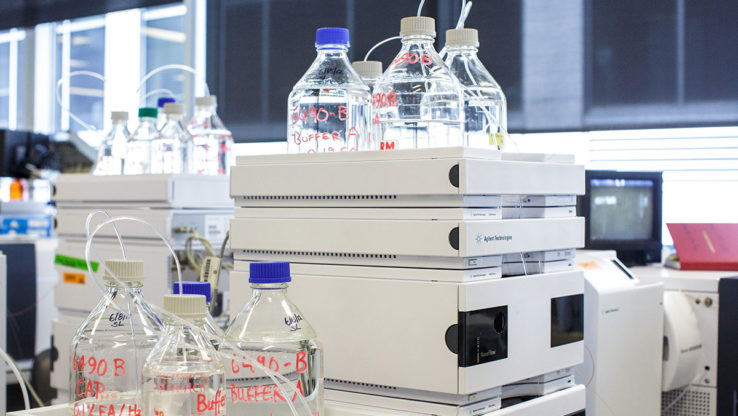
New Predictive Model for Gene Regulation of Methanogenesis of M. maripaludis
Methanogens catalyze the critical, methane-producing step (called methanogenesis) in the anaerobic decomposition of organic matter. Scientists at ISB and University of Washington led a multi-institutional effort to generate the first predictive model for gene regulation of methanogenesis in a hydrogenotrophic methanogen, Methanococcus maripaludis. The research was published on Oct. 2, 2013, in the journal Genome Research. Most species of methanogens are hydrogenotrophic –meaning they use electrons from hydrogen gas (H2) to convert carbon dioxide to methane.

Evaluating Effects of Variable Single-Cell Protein Expression on Metabolism
Stochastic gene expression can lead to phenotypic differences among cells even in isogenic populations growing under macroscopically identical conditions. Here, we apply flux balance analysis in investigating the effects of single-cell proteomics data on the metabolic behavior of an in silico Escherichia coli population. We use the latest metabolic reconstruction integrated with transcriptional regulatory data to model realistic cells growing in a glucose minimal medium under aerobic conditions.

Only at ISB: Our Proteomics Journey
ISB was founded in 2000 by Dr. Lee Hood, a systems biologist; Dr. Alan Aderem, an immunologist; and Dr. Ruedi Aebersold (pictured below), a protein chemist. This dream team created a dynamic intersection of disciplines that pervades ISB today and continues to drive innovation in research, computation and technology.



